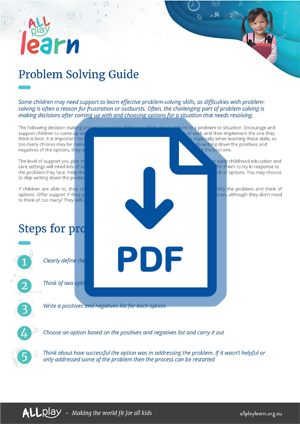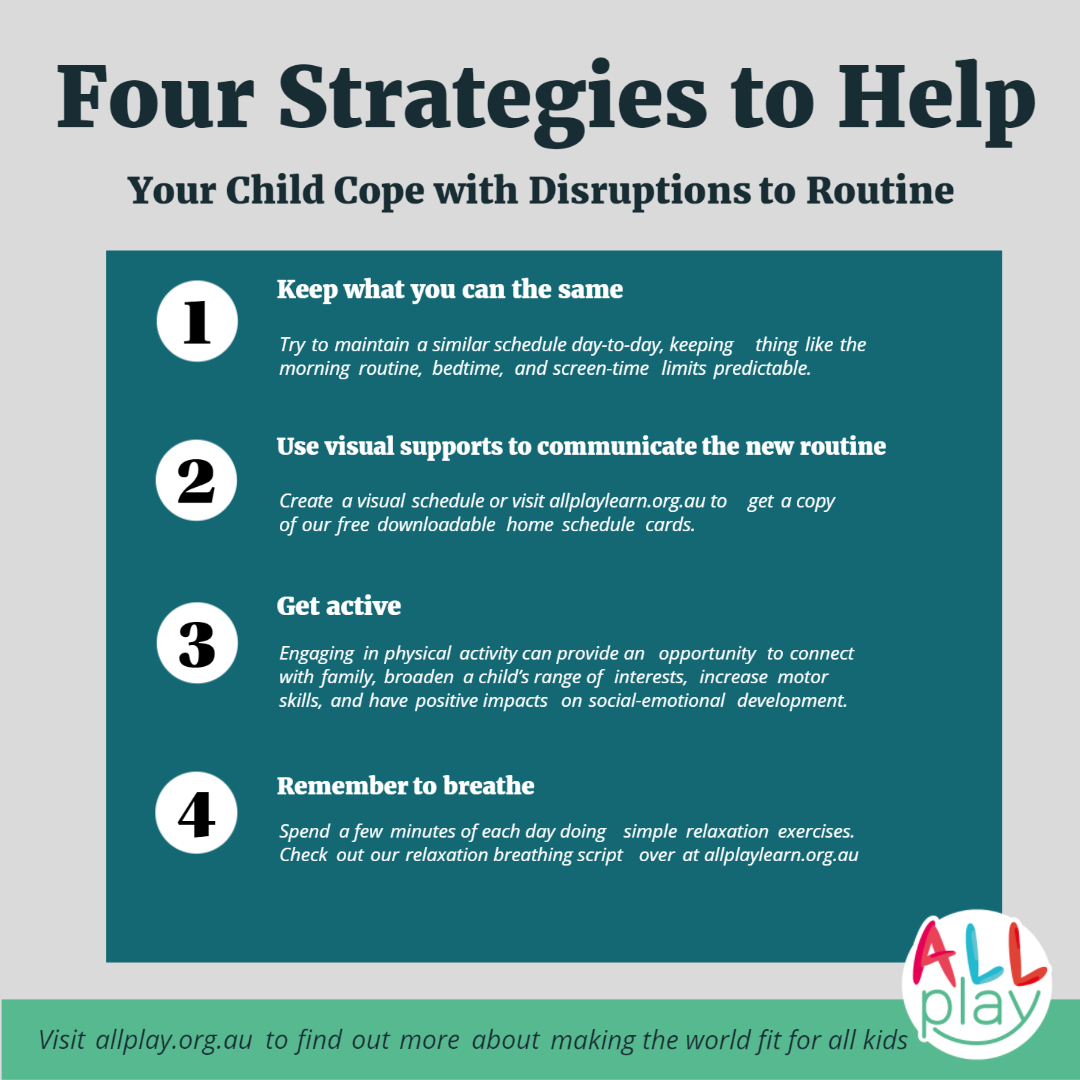Key Protective Factors
On this page:
- Sleep
- Exercise
- Healthy eating
- Social connections
- Secure, respectful and reciprocal relationships
- Play
- Routine
What are some key protective factors for child mental health and wellbeing?
Research has identified a range of different factors that can support resilience and wellbeing in young children during challenging times. Below are some areas where supports can have a positive impact.

Sleep
Research consistently identifies good sleep as essential for wellbeing. Children who get good sleep have been shown to be less impacted by loneliness. Children with autism commonly experience sleep problems and may benefit from extra support with sleep routines.

Exercise
Staying active can help children manage feelings of stress and supports their emotional wellbeing. Taking the time to head outside each day will have positive impacts on their emotions and behaviour, while also providing them with lots of learning opportunities as they explore and interact with the environment around them. Outdoor time may also be a great time to practise mindfulness. Active play also plays an important role in helping children meet their energy, emotional and social needs.
NAB AFL Auskick provide ideas for keeping young ones active via their twitter account. For strategies to help a child with a disability or developmental challenge to stay active visit AllPlay Dance and AllPlay Footy.


Healthy eating
Healthy eating is linked with better mental wellbeing in children and adults. Some children may be picky eaters – for example, some children with autism may avoid specific foods due to sensory sensitivities. If a child finds eating a range of healthy foods challenging, partner with the child’s family and allied health practitioners.

Secure, respectful and reciprocal relationships
Research has consistently shown that having secure, respectful and reciprocal relationships can help children thrive when faced with adversities (including family financial stress, health challenges, and trauma). Your relationship with children can make a big difference, no matter what a child might be facing during this time. Providing physical reassurance and positive affirmation, and setting boundaries using a friendly tone, can help children feel safe during this time.
Consider how you can help children with learning to identify, express and regulate their emotions (AllPlay Learn emotion cards and strategies can help with this). You could also practice mindfulness or relaxation breathing together. Experiencing difficulties when trying to solve a problem can often cause frustration or outbursts. Our problem-solving guide for young children is a great tool for helping children to understand their difficulties whilst brainstorming potential solutions.

Play
During times of stress, it is especially critical for young children to have periods in the day where they can engage in play. Some children may engage in play that re-enacts some of the things they have experienced throughout the pandemic, which can help them process and make sense of the current world around them. Safe and developmentally appropriate play opportunities with masks, thermometers, and other items they may have been exposed to during this time (e.g. pretend tablets/phones for online interactions) can facilitate adjustment to these new or changed experiences. Children can respond to stress in different ways, and play may be one area in which educators might notice changes in a child’s behaviours or emotion regulation. If you pick up on consistent signs that a child may be experiencing heightened stress or distress, consider checking in with families.
For more information about supporting play during COVID-19, visit Emerging Minds.





Social connections
With social distancing, many children will have experienced feelings of isolation and loneliness. Consider ways in which your centre can actively promote social connections. Children will have had fewer opportunities to practise social skills. Increased supports, therapy and opportunities to practise and engage with peers may be particularly important for children with autism, intellectual disability or anxiety. You may read more about supporting social connections in young children: